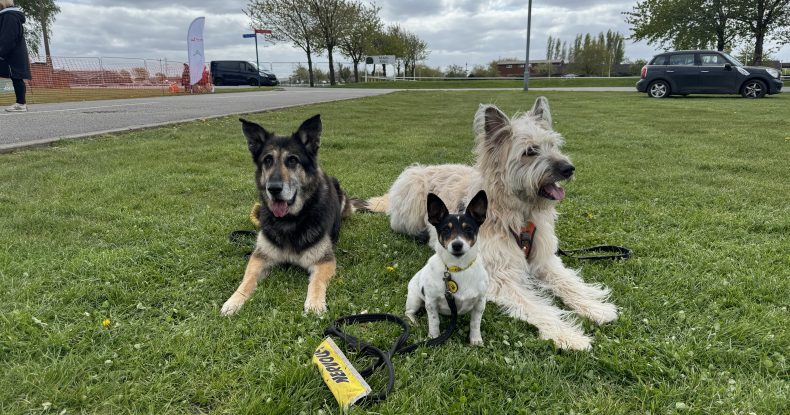Hey!
Today, I wanted to pause and explore the intricate realm of behavioural rehabilitation, specifically tailored to the unique needs of your cherished companion.
Understanding the nuances of your pet’s behaviour not only enriches your interactions but also cultivates a deeper, more harmonious bond between you both.
Reactiveness and psychological learning are pivotal aspects in this journey and by delving into the depths of your dog’s specific behaviours, we can unlock pathways to more effective handling, ultimately fostering a relationship filled with joy and understanding.
Because….isn’t that what every dog owner aspires to?
In a recent conversation with a client, I emphasised that owning a dog should be a source of enjoyment.
However, when challenges arise and it’s not as fun as you once thought it would be, there are two paths to consider:
– Re-home the dog or
– Put in the hard work required and rewire the dog’s brain
While the notion of rewiring a dog’s brain may seem daunting or even whimsical, behavioural rehabilitation encompasses a multifaceted approach.
It takes into account a myriad of factors, from past experiences to genetics, environment, and emotional state with each dog being a unique individual, necessitating personalised attention and strategies, all tailored to their specific triggers, anxieties, and communication style.
In the case of your canine companion, it’s imperative to meticulously observe and analyse their specific behavioural patterns.
Rather than dismissing behaviours as generic, it’s crucial to dissect them with precision.
What exactly triggers their reactions?
’’My dog barks at other dogs?’’ is a generic response and super unhelpful…
Try to think of it this way, instead…
Is it specific types of dogs, people, or environments?
Big dogs?
Little dogs?
White ones?
Black ones?
Male or female?
Day reactivity or nighttime?
and so on…
Understanding these nuances is the cornerstone of effective rehabilitation.
Once we identify the root causes, we can implement targeted interventions, ranging from specialised training methods to desensitisation techniques and environmental adjustments.
However, it’s essential to acknowledge that behavioural change is neither instantaneous, nor effortless.
Consistency, patience, and dedication are paramount.
I must emphasise that there’s no “quick fix” in this journey.
It requires commitment and perseverance.
I’ve encountered instances where transformation took longer than anticipated, but it’s not an insurmountable challenge because with dedication and the right approach, remarkable progress is always achievable.
This journey isn’t just about training your dog, it’s also about honing your own skills as a handler.
It’s a natural part of the process that you’ll encounter setbacks, moments of doubt, and times when you feel completely overwhelmed, but through continuous learning and growth, you’ll start to establish clear communication and boundaries, fostering a relationship built on trust and respect.
And that my friend, is the key to living a successful life together, with your reactive dog.
Ultimately, behavioural rehabilitation is a voyage filled with highs and lows.
Yet, with unwavering determination, we can enhance the well-being and quality of life for both you.
I’m here to support you every step of the way.
If you’re interested in exploring personalised strategies further, feel free to reach out.
Additionally, you can click here to reserve your spot in my upcoming workshop, designed for both individual and group learning sessions tailored to you and your reactive dog.
The workshop will take place on May 18th and it’ll be well worth the day trip
Speak soon,
Claire
Head Dog Trainer for Reactive Dogs.
